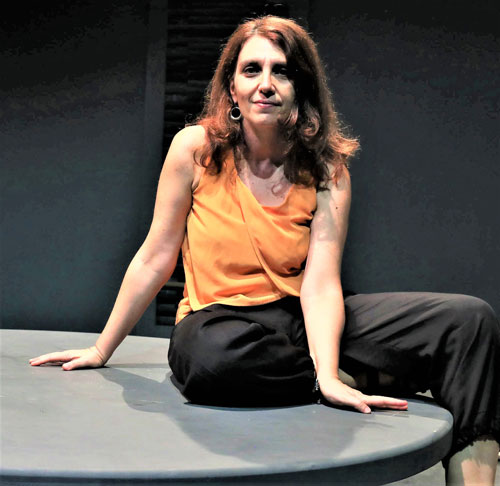Directions for Directing: Theatre and Method
We all carry a director in us.
In our family routines, our workplace, our social interactions, conversations with friends, mundane dealings with the outside world, or during those rare moments of solitary clarity, when our sharp focus on reality begins to merge with softer forms of perception, we tend to direct our lives, filtering facts that have already occurred or recalibrating thoughts toward imaginary possibilities.

Avra Sidiropoulou
Directors are authors of culture, privileged with freedom, authority and a limitless power to interpret the world and its dictums.
A good director is a fearless director who remains consistent and relentless to the mission of realizing a vision, no matter how utterly illogical it may appear to others. The allure of the directing profession is no accident: directing is primarily about creating new realities and, as such, it is inextricably linked to reinvention and redefinition.
As a director, you operate on inspiration – the fuel that gets your engine going. You’ll find it in every creative act, an indispensable element without which few works of art can ever feel complete.
All vigor, claimed American transcendentalist poet and philosopher Ralph Emerson, is contagious, and when we see creation, we also begin to create.
Each inspired vision of the world represented onstage, can, in some way or another, lead both artists and spectators to uplifting physical, psychological, or mental actions.
First and foremost, however, feeling inspired is a prerequisite for any fulfilling interaction between a director and a theatre company: not only a profoundly personal but also a contagious affair, which combines the past of your background and training, the present of rehearsal work, and the future of sharing a performance with an audience.
In the world of directing, inspiration usually comes across as a sincere instinctual attachment to an idea; an image; a sound; a person; or a sensory, emotional, or intellectual stimulus, which activates the imagination, generating a mood for reflection and a desire for expression and participation.
A rare approximation of an ideal and a state of clarity and engagement, it is both a blessing and a necessity. Essentially, inspiration can be described in terms of a discovery: a dormant thought, feeling, or response suddenly reemerges, preparing us to meet the world in all its turmoil.
A good director is a fearless director who remains consistent and relentless to the
mission of realizing a vision, no matter how utterly illogical it may appear
to others. The allure of the directing profession is no accident: directing is primarily
about creating new realities and, as such, it is inextricably linked to reinvention and
redefinition.
Directorial interpretation is communicated by a clear production concept, which
develops from an original stroke of inspiration and culminates in the synthesis
of different skills and sensibilities.
It involves an understanding of life’s complexities, an ability to analyze texts and grasp subtext, a consistent and robust style manifest in unified choices of staging, and a capacity to translate abstract notions into playable actions. Formed progressively from an initial response and connection to an idea, it is also, a filter that allows the audience to become an attentive, sensitive recipient and a co-participant in the theatre event. •2019
Excerpts from Directions for Directing: Theatre and Method by Avra Sidiropoulou. Published by Routledge & CRC Press. Reprinted with the permission of the author.
“Listen to that voice inside that helps you. Be very careful, don't let the source get dried up. Only your deep need to salvage something from the void – to act, to write, to create, not to have a “profession” – can keep you from the commonplace and from dying out. But you must have a deep recognition of your solitude to live the way you should live, not the way it is agreed upon, and not to fall for this big thing around you. Being in the theater means learning about yourself. You have to dump the insignificant in enrich yourself with its truths.” - Stella Adler


